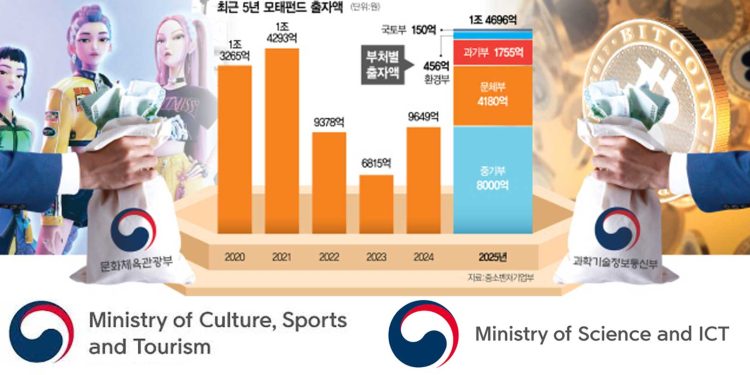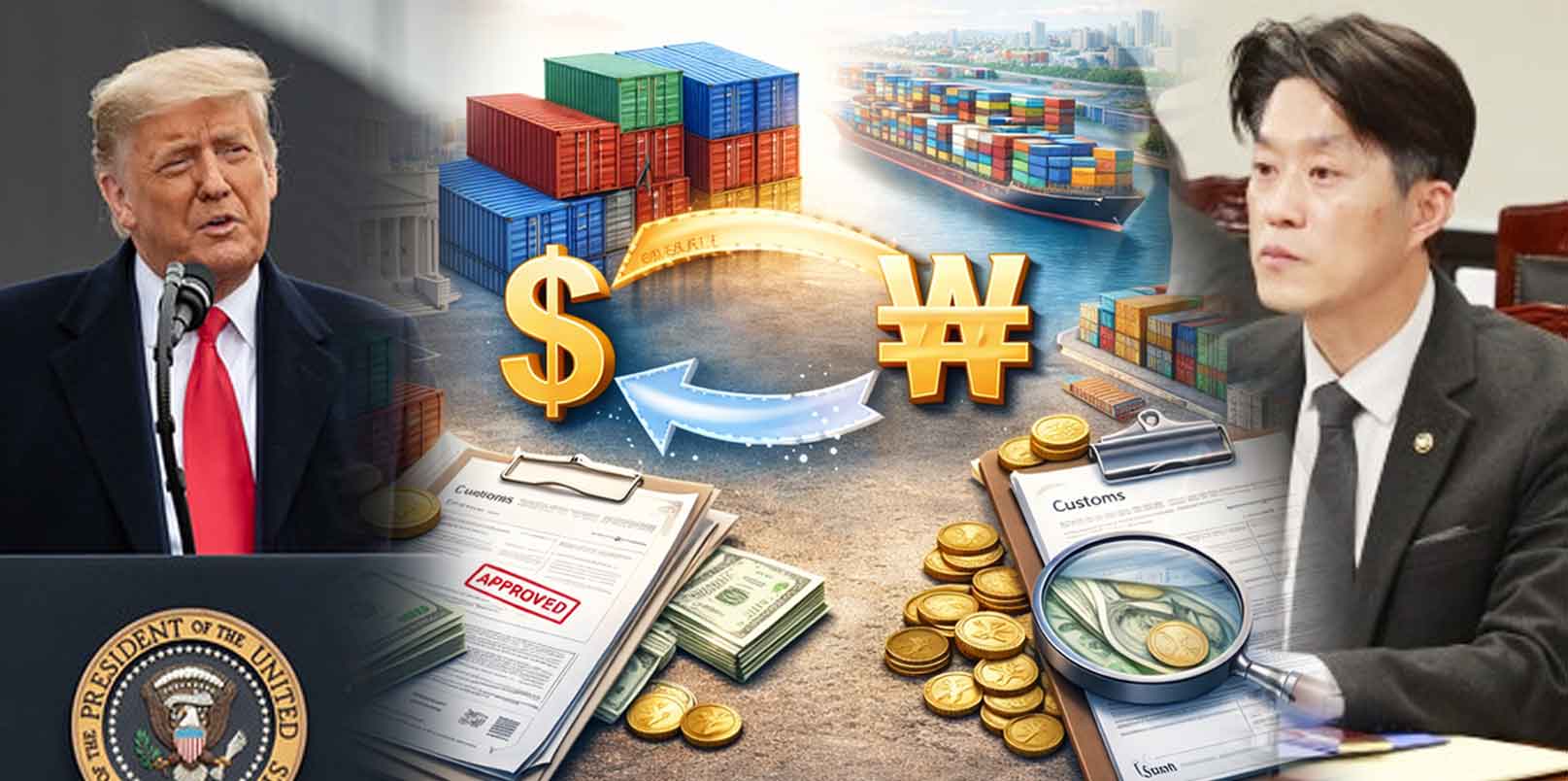South Korea’s long-standing government-led venture capital structure is entering a period of change. The Ministry of Culture, Sports and Tourism (MCST) and the Ministry of Science and ICT (MSIT) are preparing to launch independent venture funds worth KRW 600 billion (USD 445 million). Observers suggest this could lead to potential restructuring of the Fund of Funds system that has anchored Korea’s venture investment ecosystem for over two decades.
Korean Ministries Move Toward Independent Venture Funds
On September 7, industry sources confirmed that Ministry of Culture, Sports and Tourism (MCST) is preparing a research study on the “Establishment Plan for a Cultural Industry Investment Partnership” (tentative) in first half of 2026. The study will assess the current investment structure in cultural industries and design a fund model tailored to the arts and cultural sector.
This marks the ministry’s first attempt to create a standalone venture vehicle, after years of investing indirectly through the Ministry of SMEs and Startups (MSS). That is because the ministry believes that South Korea needs more effective investment in response to the global popularity of Korean content, including the recent wave of “K-pop Demon Hunters” promotions.
At the same time, Korea’s Ministry of Science and ICT (MSIT) has also begun charting its own course. Its affiliate, the Korea Internet & Security Agency (KISA), has commissioned a study on the creation of a Blockchain Innovation Fund, expected to be completed by the end of 2025.
South Korea’s Fund of Funds Has Been Under Pressure
Since 2005, Korea’s Fund of Funds (Mother Fund) has been the central mechanism for public venture capital investment. It pools resources from various ministries, with MSS historically acting as the control tower.
In 2025, the Fund of Funds contributions were:
- Ministry of SMEs and Startups (MSS): KRW 800 billion (~USD 593 million)
- Ministry of Culture, Sports and Tourism (MCST): KRW 418 billion (~USD 310 million)
- Ministry of Science and ICT (MSIT): KRW 175.5 billion (~USD 130 million)
- Ministry of Environment: KRW 45.6 billion (~USD 34 million)
- Ministry of Land, Infrastructure and Transport (MOLIT): KRW 15 billion (~USD 11 million)
The combined MCST and MSIT share amounts to about KRW 600 billion (~USD 445 million), or roughly 40% of the total KRW 1.47 trillion (~USD 1.1 billion) Fund of Funds pool.
Therefore, if both ministries formalize their independent venture funds, the central role of MSS in Korea’s venture capital policy could weaken.
Different Perspectives on Ministries’ Independent Venture Funds
An official from Korea’s Ministry of Culture, Sports and Tourism explained that cultural industries require distinct approaches:
“The cultural and arts industry is not a sector where R&D investment predictably yields outputs. Current Fund of Funds structures often prioritize profit-driven content, overlooking the unique needs of cultural and artistic projects.”
Legislative support is also being sought. A bill proposed in August 2023 by lawmaker Hwang Hee aims to establish a cultural and arts-dedicated Fund of Funds and create specialized investment partnerships.
Hwang’s office noted:
“There are objections from MSS and the Ministry of Economy and Finance, so passage may take time. However, with Ministry of Culture, Sports and Tourism’s study underway, we plan to push for legislative approval as early as the first half of next year.”
Industry experts also warn about fragmentation risks. Bae Seung-uk, head of the Korea Venture Market Research Institute, commented:
“While ministry-level funds can provide industry-specific support and close gaps, they also risk duplication, inefficiency, and lack of oversight. A central control tower under the Prime Minister’s Office or the Presidential Office is needed to coordinate strategies.”
What Independent Venture Funds Bring for Korean Startups and Investors
For startups in Korea’s cultural and technology sectors, these shifts could unlock new sources of capital. The ministries’ independent funds may offer more targeted support for creative, tourism industries, and emerging technologies like blockchain, which are areas often underserved by the general Fund of Funds model.
However, the diversification of venture capital channels also introduces complexity. Investors may benefit from sector-focused funds, but fragmented policymaking could dilute Korea’s ability to present a unified strategy to global markets. The balance between specialization and coordination will be critical to maintaining Korea’s position as a venture capital hub in Asia.
Balancing Specialization and Coordination in Venture Policy
The independent fund initiatives from MCST and MSIT mark a pivotal moment for Korea’s venture investment policy. By challenging the dominance of the Fund of Funds, they could bring tailored support to key sectors but also disrupt the centralized coordination that has defined Korea’s approach for two decades.
And so, the outcome will shape not only funding flows but also Korea’s broader credibility as a transparent and coordinated investment environment for global investors and startups. With legislative debates and pilot fund designs, 2026 will be a decisive test of how Korea balances innovation with oversight in its venture ecosystem.
🤝 Looking to connect with verified Korean companies building globally?
Explore curated company profiles and request direct introductions through beSUCCESS Connect.
– Stay Ahead in Korea’s Startup Scene –
Get real-time insights, funding updates, and policy shifts shaping Korea’s innovation ecosystem.
➡️ Follow KoreaTechDesk on LinkedIn, X (Twitter), Threads, Bluesky, Telegram, Facebook, and WhatsApp Channel.





